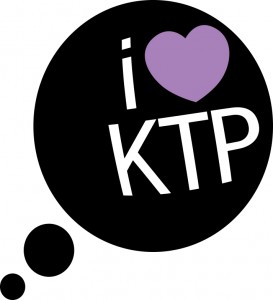As Bournemouth University’s Knowledge Transfer Partnership (KTP) portfolio increases, here are the thoughts of current KTP Associate, Celia Beckett, as she reflects on the benefits of her KTP experience.
“There are many benefits to being a KTP associate but perhaps the most important is having the chance to receive training about how to tackle many of the difficult issues of the workplace. It has been so supportive to have the backing of the KTP and to attend the two residential courses.
Coming from a background of academia and having only previously worked in the public sector the challenges of working in a different environment were considerable. I only realise now just how naïve I was about the skills that I would need to develop. I had years of work experience in social work and as an academic researcher and as the post I was engaged in was closely related to my knowledge base I assumed that it would be relatively easy to implement my ideas. My brief was to implement an assessment system into the child care organisation I was based in to assess the emotional and behavioural difficulties of the children and integrate this with improved interventions and planning.
Another key important benefit is the dual supervision, including support from the University as well as the work supervision. This has been invaluable and enables time for reflection, another person’s pair of eyes and ears to either validate what you are doing or to make suggestions. It provides realism especially when the going gets tough and it is hard to see the way forward. Again going back to the training I was able to learn about my own strengths and limitations and how this could make it difficult to work through issues e.g. that I was a finisher / completer and that much of my frustration was when I found it hard to achieve my objectives. Recognising that some things were not in my control or that change takes longer was critical.
A third benefit was the insistence that I must attend and present to as many conferences and meetings as possible. This was invaluable. It is so easy to be complacent and think that you know about a subject when ideas have moved on or you have missed out particular bits of information. Through attending conferences I was able to make contact with experts in the field and this enabled me to develop further the assessment framework. I already had considerable experience and useful contacts so I ended up with the support of the key people in my field of work. The presentations were also very useful and I worked on 3 posters and 2 papers, and a number of presentations that helped me think through the salient issues.
A fourth benefit was the importance of finding new ways of working and key to this was communication. Again through the KTP Adviser it was suggested that I should send out a regular bulletin/newsletter. I have just completed newsletter 9 and by the end of the project there will have been 10 newsletters. The style of communication was also very important as to start with I was wanting to put in a more scientific content with graphs and tables, but I soon realised that a much lighter touch was needed and have included pictures, cartoons and competitions. As long as I can get some attention as to what I am doing that is what matters.
Finally it has enabled me to plan for the future of the work I am doing. Currently my work is being taken over by 3 new employees which is a real vindication of the value of the work and we are also going back to Innovate UK for further funding. This time rather than a joint application it will be owned by the company, but they may decide to buy some expertise from the University in terms of academic supervision to retain the links.












 Upcoming opportunities for PGRs – collaborate externally
Upcoming opportunities for PGRs – collaborate externally BU involved in new MRF dissemination grant
BU involved in new MRF dissemination grant New COVID-19 publication
New COVID-19 publication MSCA Postdoctoral Fellowships 2024
MSCA Postdoctoral Fellowships 2024 Horizon Europe News – December 2023
Horizon Europe News – December 2023